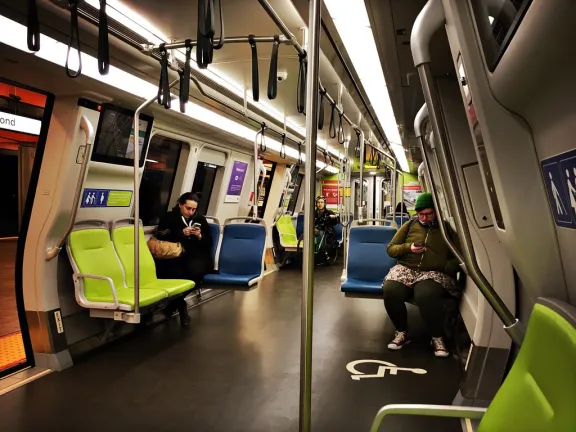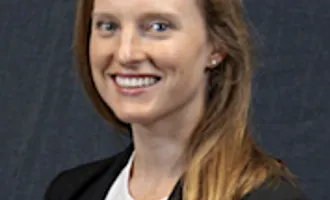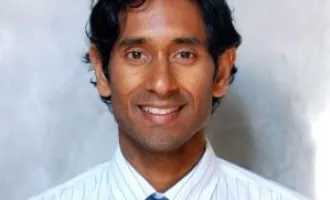
Homeward Bound
For Dave, who told me this story needed to be shared publicly as soon as I shared it with him When people find out I am from New York, they almost invariably ask if I plan on moving back after medical school.
My answer is always the same: “Why would I? San Francisco is New York with nicer people and better weather!”
For the most part, there is little that I miss about New York that I cannot find in Sa Francisco, the major exception being reliable public transportation.
Although San Francisco does not have least reliable public transportation system in the country, I routinely budget in extra time to get around if I really need to be somewhere on time.
This morning was no exception. My train was 20 minutes late. I no longer pay attention to the cause of delays. I usually keep my headphones in and resign myself to whatever amount of time it will take to get me from point A to B.
Today however, I took out a headphone and started listening to the overhead announcements when I realized they were more frequent and longer than normal.
In summary, the conductor applauded us repeatedly for our patience, and explained that several homeless people were in different cars of the train and refusing to get off despite riding without paying their fare and urinating in the corners of the train cars.
Police officers were waiting at the next station to forcibly remove the unwanted passengers. This would delay us further, but at least we would continue our journey without the constant reminder of one of San Franciso’s biggest public health issues: homelessness.
“I wish I could do more to make your ride more comfortable,” the conductor empathized, his voice thick with exasperation. “I see what you see and I smell what you smell, but there isn’t much I can do.”
After the announcement, those who had bothered to look up from their phones resumed their activities with a sigh and a headshake, mirroring the exasperation of the conductor. I nearly burst into tears.
On my patient panel was a homeless woman, I’ll call her Ella, who was admitted to the hospital for bilateral lower limb cellulitis.
Ella lived in Oakland all her life, but eventually rent became too expensive. She fell behind on payments and was eventually evicted. For 20 years Ella has stocked shelved at a grocery store on the 2pm to 11pm shift.
Then came the impossible decision: homeless shelters do not allow people to check in late at night, so she could have her job or housing, but not both.
Ella chose her job.
Every day Ella works her shift, and then she rides public transport back and forth across the bay through the rest of the night and tries to get some sleep on the trains.
In the morning, she goes to a homeless shelter that lets her take a shower, and then she is back out on the street because homeless shelters do not allow people to stay in the shelter during the day.
At 2pm she starts the cycle over again. On nights that she is completely exhausted, or her legs are unbearably painful– Ella has been admitted for lower limb cellulitis before, but it keeps getting worse because the wounds never have a chance to heal – she will stay in a motel.
“When am I going to be discharged?” Ella asked while I felt for a pedal pulse after her first night in the hospital. “I want to get back to work. I didn’t think you guys would keep me here when I went to the emergency room.”
Unfortunately, I must now disclose that Ella’s drug screen came back clean and she had no signs of withdrawal, nor would she develop them over the following 4 days of her time with us. I share this with you to protect her from the assumption that she was eager to leave the hospital and return to illicit drug use. It pains me that I must protect her in this way.
However, I would not have blamed Ella if she had turned to illicit drugs, given her circumstances. The week before I met Ella I worked 14-18 hour days on labor and delivery.
After 6 days straight of that schedule I sat in bed like a zombie, watched Netflix, and was fed by my supportive partner to recover enough to start my internal medicine rotation.
I thought I knew what it meant to be tired. And maybe I do. But I don’t know what it means to be tired and bleeding with nowhere to call home. It seemed that one of us in the room had the harder job, and it was not me.
The best solution we could find for Ella was to send her to a skilled nursing facility for a while to rest up and heal. We have no home to send her to.
She will stay there for a few days where at least she will get the dressings on her wounds changed several times a day, antibiotics, and time for her body to heal. Maybe it will be enough to stop the cellulitis from coming back.
Maybe we’ll see her again in a few weeks and attempt to substitute antibiotics and gauze for a house made a brick and mortar. Maybe Ella will hesitate to come back because she does not want to miss so many days of work again.
I’m from New York. Smelling urine on public transport and wearily watching homeless people doze off in the back of the train is the down side of urban living that New Yorkers brush aside.
“But it’s New York (or Boston, or San Francisco, or Philadelphia)!” we all say when our friends from the suburbs gasp at our descriptions of rampant homelessness. “I can’t imagine calling anywhere else home.”
Now, I can’t imagine that a hard-working person in any of these cities has nowhere to call home.
My train eventually ran so far behind that walking would get me to work faster. I got off the train and walked the rest of the way to work in the rain.
My shoes and socks were soaked through by the time I got there, so I bought a new pair of overpriced socks from the corner drug store during my lunch break. Even this reminded me of Ella.
The dry socks would protect my feet from skin break down and infection in the damp, dark, Petri dish that my sneakers had become.
I suppose in addition to hoping for the inconceivable notion that affordable housing will appear in the Bay area before Ella is discharged from her skilled nursing facility, I am also praying for it not to rain.
Shakkaura Kemet, MPH
UCSF M.D. Candidate|Class of 2021



